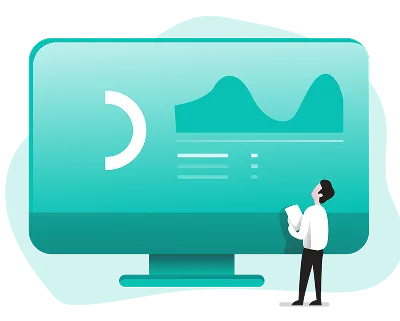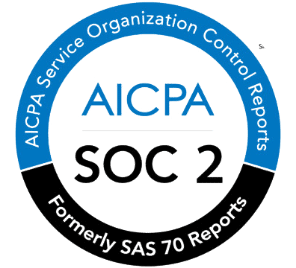Estate Planning Questions for the Modern Firm: “Can I Use CRM Software for Estate Planning?” and More

As advancements in tech tools and software systems continue to evolve, financial planners have more options than ever to help them streamline their workflows, enhance their client relationships, and deliver superior service.
However, with such a wide array of tools available, it’s crucial to take the time to make informed decisions when you’re considering adding specific types of software to your firm’s tech stack.
- Financial planners have to constantly stay abreast of the best tools for their clients in order to make sure they are on the right track financially to meeting their goals…today and well into the future.
- Estate planning software is an excellent financial planning tool but needs to be carefully researched in order to find the best one for your firm and your clients’ future needs.
- When choosing estate planning software, make sure you look for products that are affordable, easy to use, and fit well with the rest of your financial tech stack.
Whether you are a seasoned financial planner with a large list of loyal clients or are an advisor who is just beginning a career, understanding what types of tech tools are best for your clients and firm is essential.
Let’s look at some specific questions that are often asked when it comes to adding estate planning software to your tech stack. Having these answers will help you begin to think through what you need, why you need it, and how best to go about implementing it into your firm’s menu of financial services.
Built by CFP® Professionals,
for CFP® Professionals
Holistiplan was designed by experienced advisors Roger and Kevin to streamline your financial planning process. Achieve more for your clients in less time
Start Your Free 7-Day TrialThe Growing Importance of Estate Planning
As we age, life can often become increasingly complex and unpredictable, particularly when it comes to our finances.
This is why every financial planner should be providing their clients with the opportunity to create a solid estate plan during their financial planning process.
Estate planning is no longer just a concern for the wealthy.

For many of your clients, it is an essential part of the aging process and should be available for anyone who wants to ensure their assets are managed and distributed according to their wishes after they pass away.
Here are some key reasons why estate planning is becoming more crucial than ever:
Protection of Assets:
Estate planning helps protect a client’s assets from unnecessary taxes, legal fees, and potential disputes. By creating a comprehensive estate plan, you can help them minimize the impact of estate taxes and ensure that more of their assets are passed on to their beneficiaries.


Clarity and Control:
An estate plan provides clear instructions on how a person’s assets should be managed and distributed. This clarity reduces the likelihood of disputes among family members and ensures that the estate owner’s wishes are honored. It also allows them to retain control over important decisions, such as who will manage their estate and act as guardian for any minor children that may be involved.
Healthcare Decisions:
Estate planning includes healthcare directives, such as living wills and medical powers of attorney. These documents specify your preferences for medical treatment and designate someone to make healthcare decisions on your behalf if you are unable to do so. This ensures that your healthcare wishes are respected and reduces the burden on your loved ones during difficult times.


Beneficiary Designations:
Proper estate planning ensures that your beneficiary designations are up-to-date and aligned with your overall estate plan. This is particularly important for retirement accounts, life insurance policies, and other assets that pass directly to beneficiaries. By regularly reviewing and updating these designations, you can avoid unintended consequences and ensure that your assets go to the right people.
Special Needs Planning:
If you have a family member with special needs, estate planning can help provide for their long-term care and financial security. Special needs trusts, for example, can be established to ensure that they receive the necessary support without jeopardizing their eligibility for government benefits.


Business Succession Planning:
For business owners, estate planning is critical for ensuring a smooth transition of ownership and management. By creating a succession plan, you can designate successors, outline the terms of transfer, and establish provisions for the continued operation of the business. This helps protect the value of the business and provides stability for employees and clients.
Charitable Giving:
Estate planning allows you to incorporate charitable giving into your legacy. By including charitable donations in your estate plan, you can support causes that are important to you and potentially receive tax benefits. Planned giving strategies, such as charitable trusts and foundations, can maximize the impact of your charitable contributions.


Adaptability to Changing Circumstances:
Life is constantly changing, and so are your needs and goals. A well-crafted estate plan is adaptable and can be updated to reflect changes in your family, financial situation, and legal environment. Regularly reviewing and revising your estate plan ensures that it remains relevant and effective.
Estate planning is a critical aspect of financial planning that provides peace of mind and security for your clients and their loved ones.
By taking the time to create a comprehensive estate plan, you are helping them to protect their assets, ensure their wishes are honored, and provide for the future well-being of every family.
Elevate Your Practice with Holistiplan
Holistiplan is trusted by thousands of advisors to deliver faster, more valuable financial plans. Start your free 7-day trial and see the difference for yourself
Get Started TodayWhat Every Financial Planner Needs to Know: Key Questions to Ask About Estate Planning Software
Estate planning is an essential aspect of financial planning, ensuring that clients’ wishes are honored, assets are protected, and loved ones are provided for.

As a financial planner, choosing the right estate planning software for your firm can significantly enhance your ability to deliver comprehensive and effective services.
To make an informed decision, let’s look at the answers to the following key questions about estate planning software.
1. Does the Software Offer Comprehensive Estate Planning Tools?
Ensure that the software provides an all-in-one solution to estate planning, including document organizational tools, analysis reports, and beneficiary designations.
Comprehensive tools allow financial advisors to address their clients needs accurately and effectively.
2. Can the Software Integrate with My Existing Tech Stack?
Integration with your existing financial planning and CRM software is crucial for seamless workflows and data consistency.
Seamless integration enhances efficiency and reduces the need for duplicate data entry.
3. Can I Use My Existing CRM Software for Estate Planning?
CRM (Customer Relationship Management) software is a powerful tool for managing client information, client task management, and tracking client interactions.
And while CRM systems can be helpful in some aspects of estate planning, most financial firms will choose estate planning software that is designed specifically for a client’s estate portfolio management and organization.
4. Does the Estate Planning Software Come Paired with Other Software Solutions?
Finding a software for your estate planning needs that is multi-functional can greatly enhance your practice’s efficiency and effectiveness.
One such software is Holistiplan, which combines both estate planning software and tax planning software into one solution.
5. Is the Software User-Friendly and Intuitive?
Ease of use is vital for both you and your clients. Look for estate planning software that is intuitive and straightforward, minimizing the learning curve and allowing you to focus on delivering value to your clients.
6. Does the Software Provide Secure Document Management?
Estate planning involves managing sensitive documents, such as wills, trusts, and healthcare directives.
Ensure that the software you choose offers secure document storage, easy retrieval, and secure sharing options. Robust document management features protect client data and ensure that important documents are easily accessible.
7. What Customization Options Does the Software Offer?
Every client has unique estate planning needs. Check if the software allows for customization of client intake documents, workflows, and reports to tailor them to individual client requirements.
Customization options enable you to provide personalized and comprehensive estate planning services.
8. Does the Software Offer Collaboration Features?
Estate planning often involves collaboration with other professionals, such as attorneys, a tax advisor, and family members. Evaluate whether the software provides collaboration features, such as shared access and real-time updates.
These features facilitate effective communication and make sure everyone is on the same page.
9. How Robust is the Security Infrastructure?
Security is paramount when dealing with sensitive financial and personal information. Ensure that the software has a robust security infrastructure, including encryption, multi-factor authentication, and regular security updates. Security features protect both client data and your firm’s reputation.
10. What Training and Support Resources are Available?
Quality training and customer support are essential for successful software implementation and ongoing use. Ask about the available training resources, such as tutorials, webinars, and user guides. Evaluate the customer support options, including phone support, live chat, and online resources.
Choosing the right estate planning software is a critical decision that can significantly impact your ability to deliver comprehensive and effective services.
By asking these key questions, you can make an informed decision that enhances your practice, improves client satisfaction, and ensures compliance with legal and regulatory requirements.
Efficiency Meets Value in Financial Planning
Holistiplan bridges the gap between speed and quality, helping advisors like you deliver greater value to every client
Holistiplan: The Most Comprehensive Estate Planning Software for Your Firm’s Future Needs
In the evolving landscape of financial planning, having a robust and comprehensive software solution is essential to meeting all of your clients’ ongoing needs.
That said, as a financial planner, you also need to make sure you are choosing products for your financial practice that are cost effective, highly effective, and easy to implement into your current tech stack of services.
This is why Holistiplan stands out as a premier software choice for today’s financial firms, offering an estate and tax planning platform that seamlessly integrates into the other technology you already have.

With its wide range of estate planning tools, advanced tax planning features, and user-friendly interface, Holistiplan ensures that you can provide detailed and cohesive financial advice.
If you are a financial planner who is looking to find tools that will help you improve your clients’ lives today and well into the future, look no further than Holistiplan for all your tax and estate planning needs. Reach out to our skilled customer service team today to find out how we can help protect each client’s tomorrows.




